Prostate cancer: Pioneering research at Queen's University Belfast
- Published
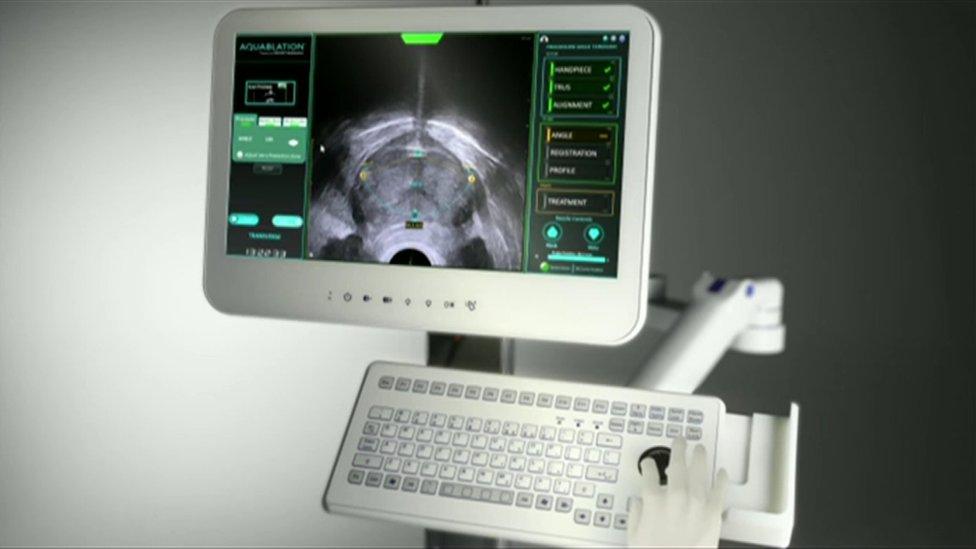
More than 9,000 men in Northern Ireland are living with prostate cancer
Research into personalised radiotherapy treatment for prostate cancer is under way at Queen's University Belfast.
It is the first time scientists are examining genes to determine a patient's cancer treatment.
Dr Victoria Dunne, who's been awarded £280,000 for her research said it was "exciting and a privilege to be involved".
Prostate cancer is the most common cancer in men, with more than 9,000 men living with it in Northern Ireland.
More than 11,500 men die from the disease in the UK each year - that is one man every 45 minutes.
Dr Dunne said this "personal therapy involving genetic therapy will determine different treatments for different men".
"Basically two men would receive a different treatment if they came forward because they have different genes. That could include the amount of radiotherapy during treatment," she added.
"I will be studying how genes influence men's response to a type of radiotherapy called radium-223."
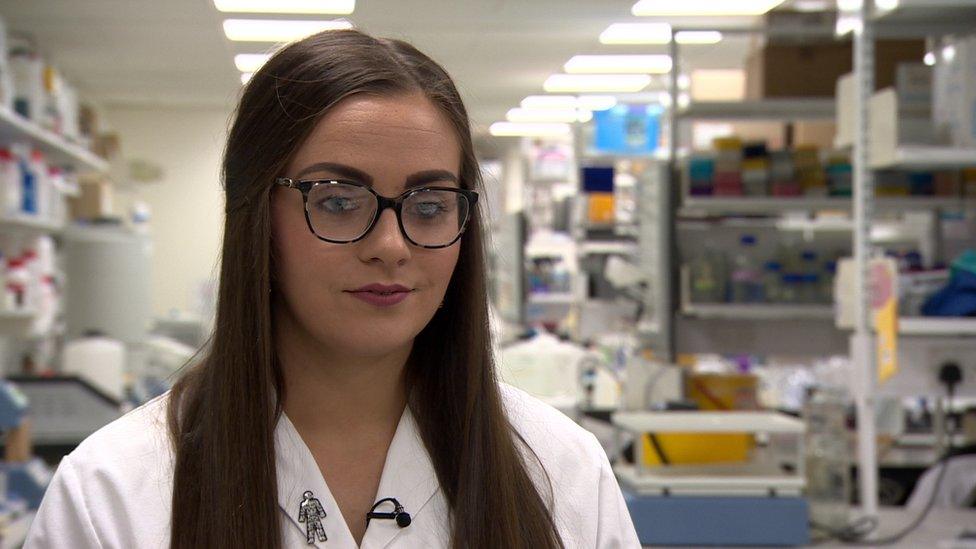
Dr Victoria Dunne said it was a privilege to be involved in the research
The project will combine the treatment with drugs that stop cancer cells from being able to repair their DNA to see whether this improves its effectiveness.
According to Dr Dunne, if successful, the new treatment combination could be targeted at men who carry the genetic change, "helping them live a longer, better quality of life".
It could take at least five years before the treatment is part of a clinical trial in Belfast.
The grant is part of Prostate Cancer UK's fellowship scheme and will involve Dr Dunne travelling to Oslo University Hospital in Norway, which is taking the lead in developing novel radiotherapy treatments.
'Tailored' treatment
Michael Currid, from Coleraine, County Londonderry, survived prostate cancer after being diagnosed six years ago.
He said this "tailored" treatment was "vitally important as no two patients are the same".
A keen cyclist, Mr Currid sought blood tests after feeling "tired and weak" on long cycle journeys.
Michael Currid survived prostate cancer after being diagnosed six years ago.
"I was told I had an aggressive tumour and then you start thinking about what time you have left and not being able to play with the grandkids," he said.
"Once I felt unwell, I sought help, I had surgery and chose not to have radiotherapy or chemotherapy.
"A one-size-fits-all cancer treatment is no longer appropriate - this new research backs that."
Prostate cancer mainly affects men over 50 and the risk increases with age.
The risk is higher for black men or men with a family history of prostate cancer.
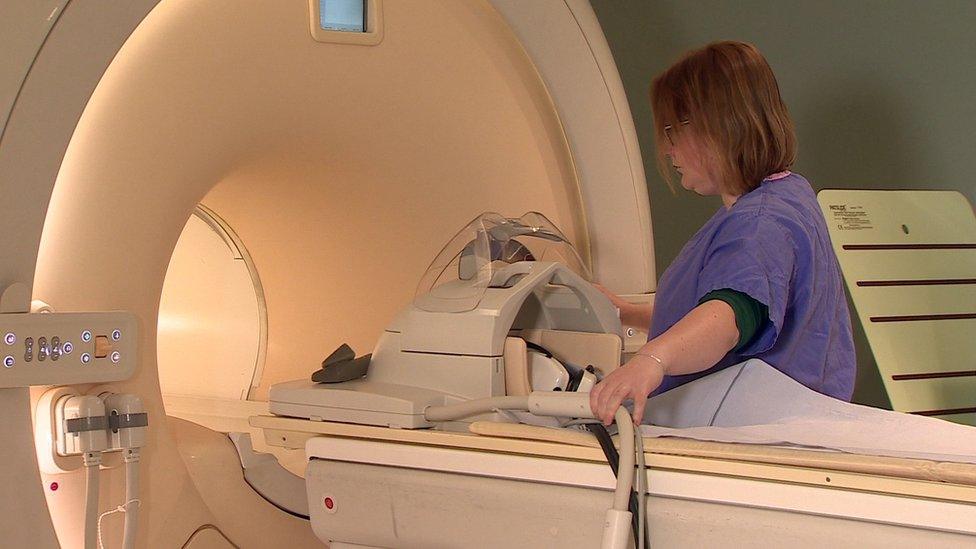
The research is into personalised radiotherapy treatment for prostate cancer
Prostate cancer often has no symptoms so men should not wait to see changes, including urinating more or finding their flow is slower, before they act.
In Northern Ireland, the percentage of men surviving for five years after a diagnosis of prostate cancer has increased from 66% between 1996-2000 to 87% between 2011-2015.
While partially down to improvements in treatment, it is also caused by changes to the way prostate cancer is diagnosed which means more men being diagnosed earlier.
Dr Dunne, who lost a brother to cancer, said that to think she can help one man to live longer and one family to benefit from that is a "wonderful feeling".
- Published27 December 2021
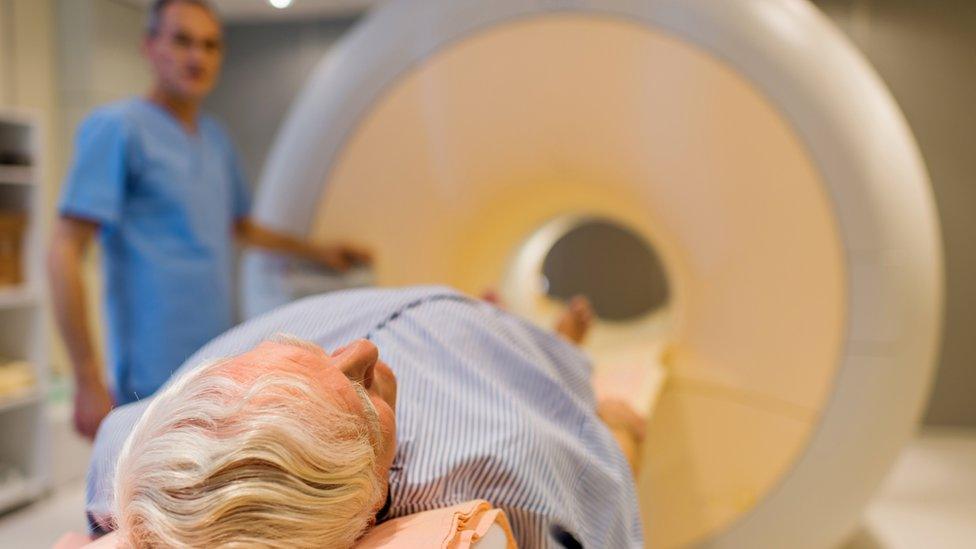
- Published28 July 2022
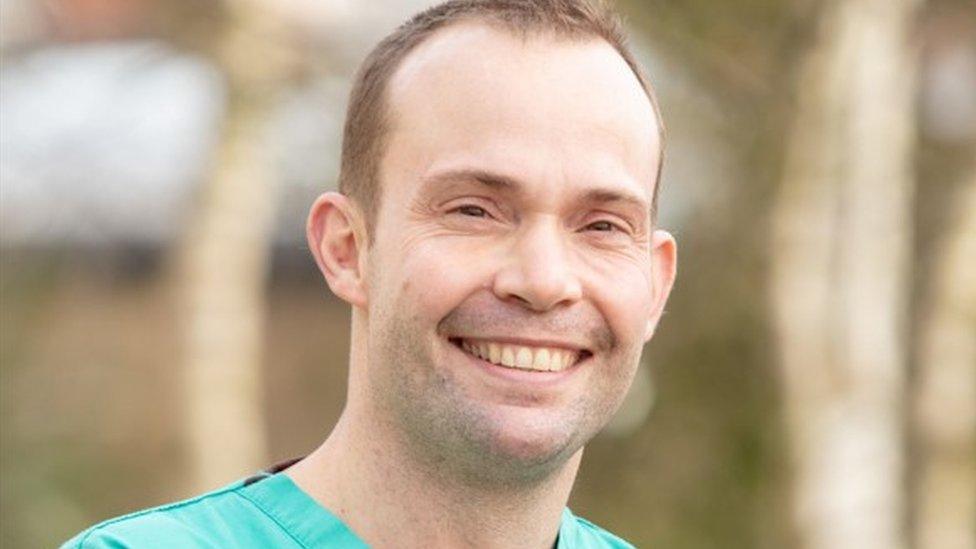
- Published20 April 2022
